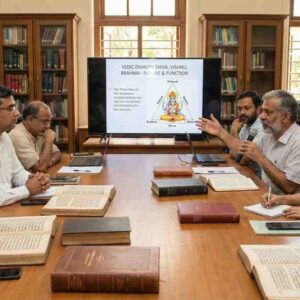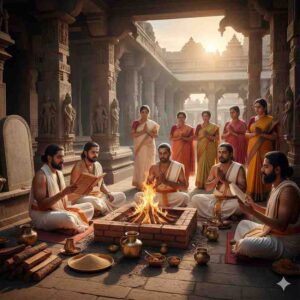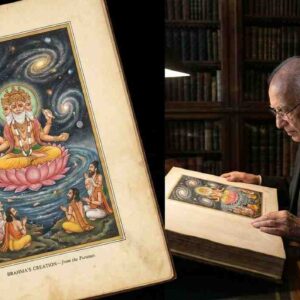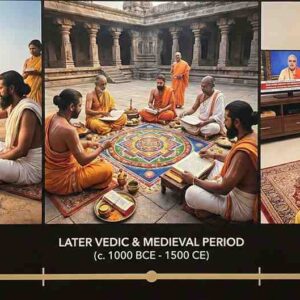TheVedas, considered the oldest spiritual texts in Hinduism, form the foundation of religious practices and rituals in India. Rooted inShruti(divinely revealed knowledge), the Vedas are more than philosophical musings; they are manuals for religious life. The role of religion in shaping Vedic practices underscores the essence of belief, blending faith, devotion, and cosmic order into structured systems that have endured for millennia.
Religion as the Foundation of Vedic Practices
At its core, religion provides the framework for interpreting and practicing the principles enshrined in the Vedas. Religious belief transforms the abstract teachings of the Vedas into tangible practices, making them accessible to individuals and communities.
How Religion Shapes Vedic Practices:
- Rituals and Worship: The Yajurveda lays out detailed instructions for yajnas (sacrifices), which are central to Vedic religious ceremonies. These rituals embody the connection between humans and divine forces, ensuring harmony and balance in the cosmos.
- Sacred Hymns: The Rigveda provides hymns dedicated to deities such as Agni (fire), Indra (rain), and Varuna (cosmic order). These hymns form the basis of Vedic worship, reflecting humanity’s reverence for the divine.
- Community Practices: Religion institutionalizes Vedic principles, fostering a shared sense of purpose through festivals, pilgrimages, and communal ceremonies.
For example, rituals likeAgnihotra(fire offerings) are not just symbolic acts but deeply religious practices rooted in Vedic instructions, emphasizing the role of belief in sustaining cosmic order.
Faith and the Cosmic Order
The Vedas revolve around the concept ofRta(cosmic order), a principle that governs the universe. Religion provides the belief system that aligns human actions with this cosmic order, ensuring spiritual and moral harmony.
- Dharma (Duty): Vedic practices are often guided by Dharma, the moral and ethical duties that uphold cosmic balance.
- Karma (Action): Religious teachings based on Vedic principles emphasize the importance of performing actions in accordance with divine will to maintain spiritual order.
- Sacred Authority: The Vedas, seen as eternal truths, derive their sanctity through religious faith, ensuring their continued relevance across generations.
The Interplay of Religion and Philosophy
While religion shapes the practical aspects of Vedic practices, it coexists with the philosophical depth of the Vedas. This interplay allows the Vedas to serve dual purposes:
- Faith-Based Practices: Rituals, prayers, and ceremonies cater to the devotional aspect of religion.
- Philosophical Exploration: Concepts like Brahman (ultimate reality) and Atman (self) provide intellectual and spiritual depth.
Texts like theBhagavad Gitaexemplify this balance, blending religious devotion with philosophical inquiry to offer a holistic understanding of life and existence.
Relevance of Vedic Practices Today
In modern times, Vedic practices shaped by religious beliefs continue to influence Hindu rituals and spirituality. From daily pujas (worship) to elaborate ceremonies like weddings and yajnas, the essence of belief remains central.
Moreover, the ecological and ethical dimensions of Vedic teachings, rooted in religious faith, are gaining prominence in addressing global issues like sustainability and mindfulness.
Conclusion
Religion plays an indispensable role in shaping Vedic practices, transforming the cosmic and philosophical principles of the Vedas into structured, faith-based systems. This essence of belief ensures that Vedic traditions remain vibrant and relevant, bridging the spiritual and the practical to guide humanity toward harmony and understanding. By intertwining devotion with cosmic principles, religion sustains the timeless legacy of the Vedas, enriching both individual lives and collective culture.













